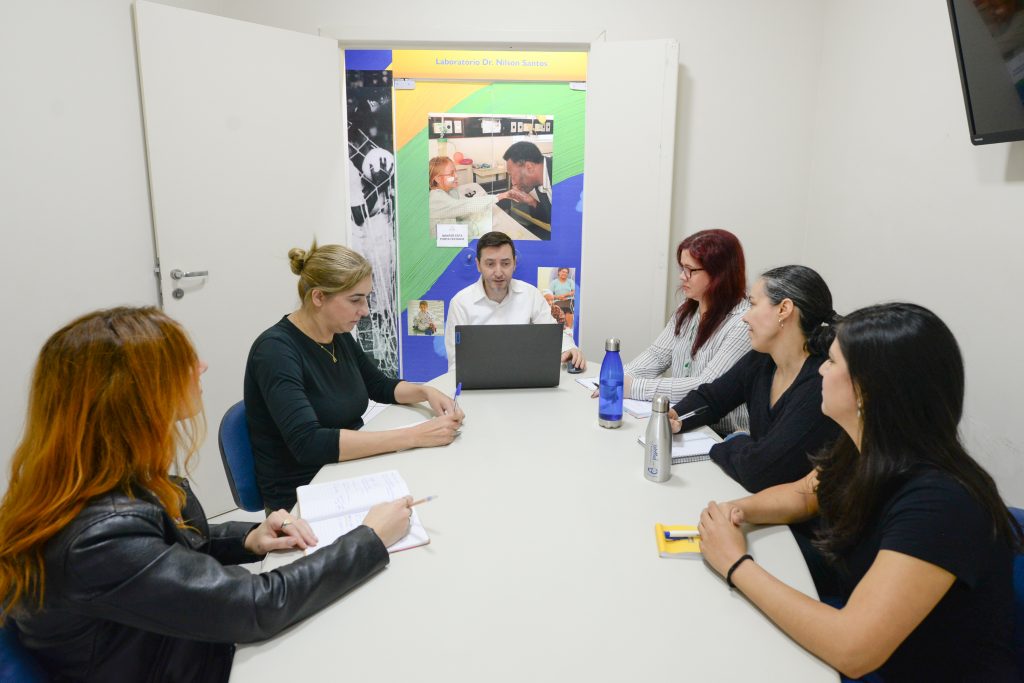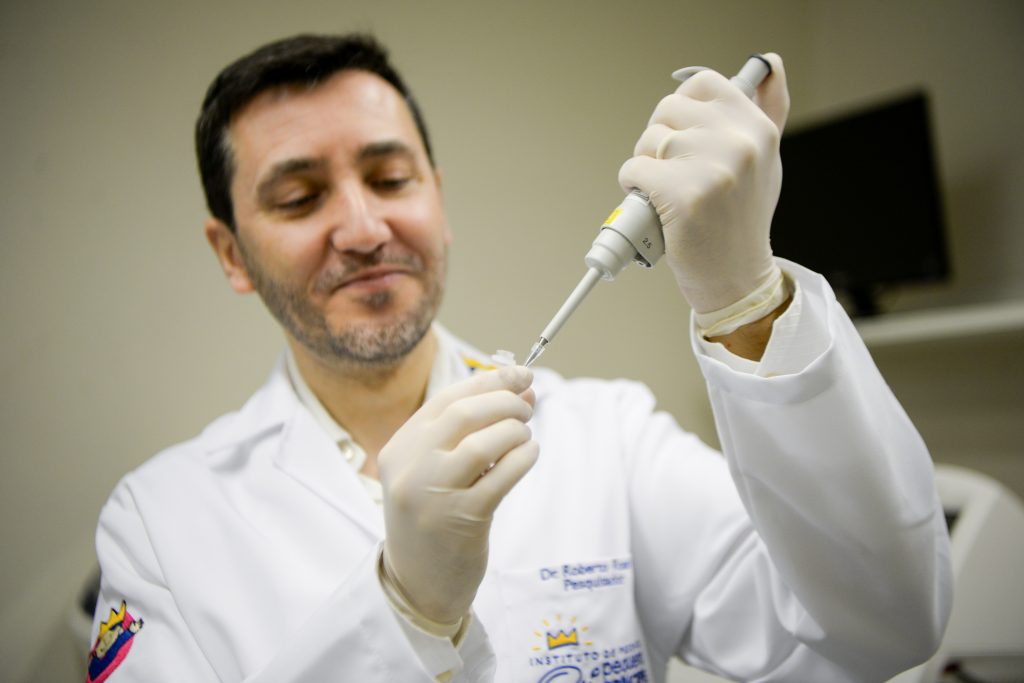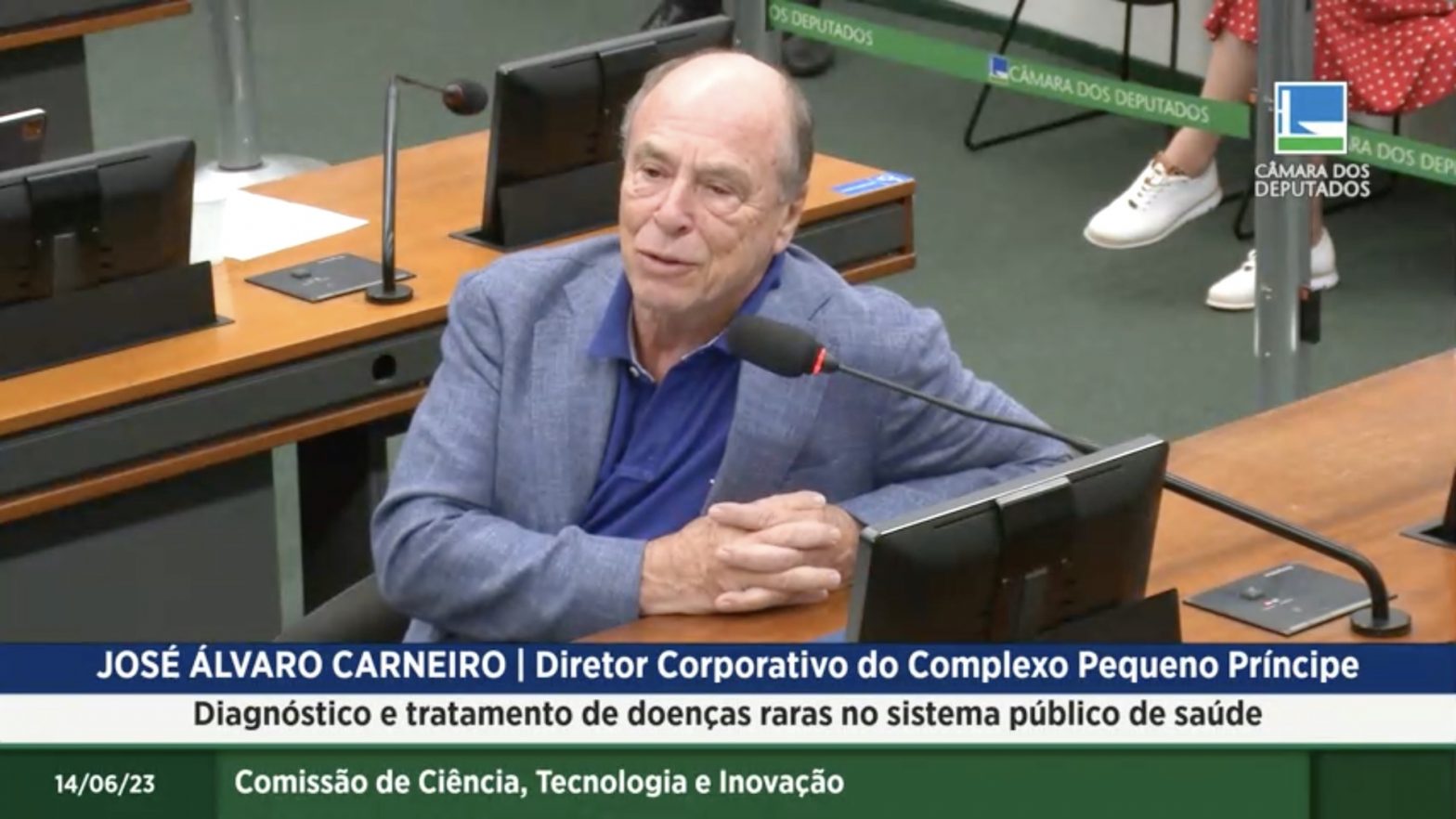The Research Institute team is part of a national pediatric oncology research network
Mobilized by the Ministry of Science, Technology, and Innovation, the network will act to contribute to the increase in childhood cancer cure rates

A group of researchers from the Pelé Pequeno Príncipe Research Institute, led by scientist Dr. Roberto Rosati, was selected to participate in a national research network in pediatric oncology. The initiative is from the Ministry of Science, Technology, and Innovation, through the National Institutes of Science, Technology, and Innovation Program (INCTs, abbreviation in Portuguese).
The objective of the INCT BioOncoPed is to integrate and consolidate the research community in childhood cancer in Brazil, in collaboration with international groups of excellence, associating biological and clinical research, medical and social assistance, technological innovation and entrepreneurship, to contribute to the evolution of knowledge, providing improvements in cure rates and quality of life for children and adolescents with cancer.
What is an INCT?
The INCT Program is characterized by large long-term research projects, in national and/or international networks of scientific cooperation for the development of projects with scientific impact and training of human resources. Each INCT works on themes from different areas of knowledge, involving thousands of researchers and fellows in complex themes, in different laboratories and centers that are part of the research networks.
How Pequeno Príncipe will contribute to research

Childhood cancer corresponds to a group of several diseases that have in common the uncontrolled proliferation of abnormal cells and that can occur anywhere in the body. As in developed countries, in Brazil, cancer is already the leading cause of death (8% of the total) due to disease among children and adolescents aged 1 to 19 years. The estimate is about 8,000 new cases for 2023.
The Research Institute team will have three years to develop the projects, which are being defined and will be carried out in partnership with the Oncology Service of the Pequeno Príncipe Hospital, which assists approximately 100 new patients with cancer per year.
“We are going to focus our studies on the in-depth analysis of leukemia cells and tumors of the central nervous system. These are the two types of cancer most commonly treated at the Hospital,” explains Rosati. The projects should start later this year.
More
Pequeno Príncipe Neurology Service completes 40 years
The institution has one of the most complete services in Brazil in the field of pediatrics
Director of Pequeno Príncipe advocates more resources for the treatment of rare diseases
The breakthrough achieved by medicine from genomics can provide improvements in diagnosis and treatment, but costs are still a challenge
New equipment for cardiopulmonary bypass increases the safety of cardiac surgeries
State-of-the-art machines widely used in the United States and Europe were acquired by Pequeno Príncipe with funds donated by the State Government









